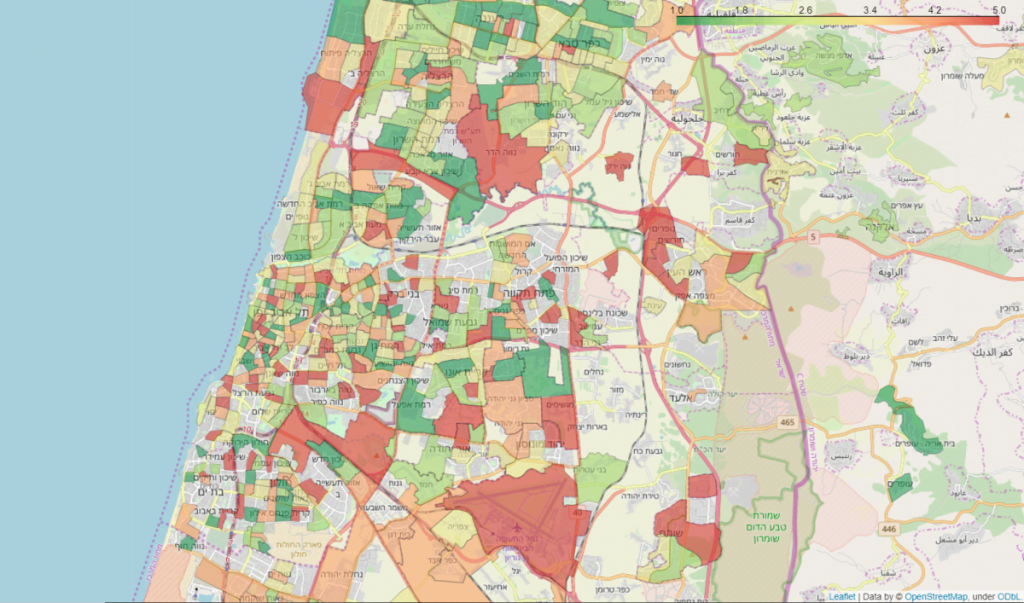Israeli scientists have developed a framework for monitoring, identifying, and predicting the novel coronavirus’s spreading zones in the country. The method, developed jointly with researchers from The Weizmann Institute, The Hebrew University of Jerusalem and Clalit Health Services – and in coordination with the Israeli Health Ministry – is built on population-wide surveys, data analysis, and regional mapping.
The questionnaires have been answered by some 60,000 Israeli so far, according to an announcement by the Weizmann Institute. The anonymized surveys track the development of virus-induced symptoms on a neighborhood level, and the analysis relies on Big Data algorithms and artificial intelligence to implement the mapping.
Preliminary data analysis detected a significant increase in symptoms reported by the public in areas where verified patients are known to have passed, the university said, stressing that the questionnaire does not diagnose coronavirus infection.
“Viral spread occurs in clusters of infection; thus, early identification of clusters may facilitate various actions aimed at slowing down the spread of the virus,” the Weizmann Institute said in a statement.
“This accurate, neighborhood-level mapping may enable the health authorities to concentrate on areas in which an outbreak and spread of the virus is predicted – while allowing them to ease measures in areas where an outbreak is not expected,” it went on.
“These questionnaires are the only tool that can present a general picture of the virus’s outbreak across the country. It is important to note that they are not intended to replace the efforts of increasing the number of tests to identify patients and carriers,” says Professor Eran Segal, a computational biologist at the Weizmann Institute and one of the scientists behind the pilot project
“However, tests can never cover the entire population – due to both logistic and economic constraints. We believe that our method may provide the Ministry of Health a strategic tool for tackling the crisis,” he added.
Professor Segal alongside Professor Benjamin Geiger of the Weizmann Institute’s Department of Molecular Cell Biology, and Professor Yuval Dor from The Hebrew University’s Faculty of Medicine, are currently working to establish a global forum to share data and methods.
COVID-19, the disease caused by the novel coronavirus known as 2019-nCoV and SARS-CoV-2, has killed close to 15,000 people worldwide and has infected over 300,000, as of March 23. In Israel, over 1,000 people have tested positive for the disease, according to Health Ministry data.
Related posts

Israeli AI Safety Tool Among TIME’S Best Inventions For 2024

Editors’ & Readers’ Choice: 10 Favorite NoCamels Articles

TAU Team Discovers Mechanism To Eliminate Cancerous Tumors




Facebook comments